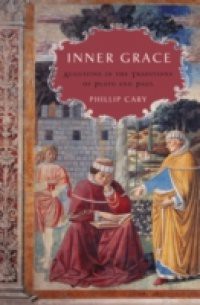This book is, along with Outward Signs (OUP 2008), a sequel to Phillip Carys Augustine and the Invention of the Inner Self (OUP 2000). In this work, Cary traces the development of Augustines epochal doctrine of grace, arguing that it does not represent a rejection of Platonism in favor of a more purely Christian point of view a turning from Plato to Paul, as it is often portrayed. Instead, Augustine reads Paul and other Biblical texts in light of his Christian Platonist inwardness, producing a new concept of grace as an essentially inward gift. For Augustine, grace is needed first of all to heal the mind so it may see God, but then also to help the will turn away from lower goods to love God as its eternal Good. Eventually, over the course of Augustines career, the scope of the souls need for grace expands outward to include not only the inner vision of the intellect and the power of love but even the initial gift of faith. At every stage, Augustine insists that divine grace does not compromise or coerce the human will but frees, heals, and helps it, precisely because grace is not an external force but an inner gift of delight leading to true happiness. As his polemic against the Pelagians develops, however, he does attribute more to grace and less to the power of free will. In the end, it is Gods choice which makes the ultimate difference between the saved and the damned, and we cannot know why he chooses to save one person and not another. From this Augustinian doctrine of divine choice or election stem the characteristic pastoral problems of predestination, especially in Protestantism. A more external, indeed Jewish, doctrine of election would be more Biblical, Cary suggests, and would result in a less anxious experience of grace. Along with its companion work, Outward Signs, this careful and insightful book breaks new ground in the study of Augustines theology of grace and sacraments.



















